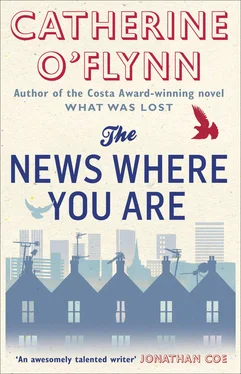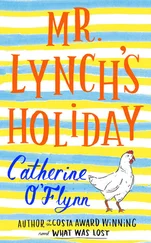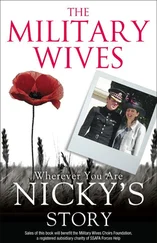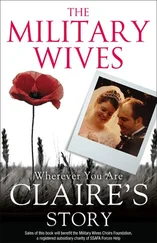Irene seemed to read his mind. ‘All a bit Dorian Gray, isn’t it? Him on telly getting younger-looking every year with his surgery, hair transplants and dolly birds, and here’s me, the skeleton in the cupboard, disintegrating quietly in Evergreen.’ She laughed. ‘Oh, I’m exaggerating, dear. Don’t look so shocked. He didn’t have me locked up. We were divorced years ago. I remarried very happily, but when my Geoff passed on I didn’t want to stay in the house on my own.’
Frank remembered that it was Phil who’d first recommended Evergreen for Maureen. He’d said he knew someone there; Frank had had no idea he’d meant his ex-wife. For no clear reason he felt ashamed of Phil. ‘Did he ever visit you here?’
‘Phil? You are joking, aren’t you? We stayed in touch. Christmas cards, the occasional phone call, that kind of thing — we were always on good terms — but Phil wouldn’t step foot in somewhere like this. He’d be terrified.’
‘What do you mean?’
‘You must have known what he was like. The vainest man I ever met — even when he was a lad he was always very particular about his clothes and hair. He hated the idea of these places. He told me as much when I first moved into one. He said: “How can you stand to be surrounded by old people?” I said to him: “I am old, Phil. So are you.” He thought he could run away from it. Poor Phil. I was terribly upset when I heard what happened to him, but I was ill at the time, you see, and couldn’t make it to the funeral.’
Frank imagined if Irene had been there how alien she would have seemed amongst all the celebrities and fans. He had a picture in his head of her standing at the graveside in her lilac cardigan and neatly set and curled hair next to Michelle in her Italian sunglasses and crocodile-skin boots.
‘My children … well, they’re not children now — I’m a great-grandmother — but anyway they find it hard to believe that I was married to him. They say: “Why did you let him go?” Which I think isn’t very nice to their father, really. I tell them, “Well, if I hadn’t, you wouldn’t be here, would you?” That was the reason, you see. I left him, not the other way round. I did it because he didn’t want children. He couldn’t stand the thought of moving aside for someone else — even his own child. Too much of a child himself, I suppose. Poor Phil.’
A member of staff approached from the side. ‘Irene?’
‘Yes, dear.’
‘The life-drawing class is starting now. You put your name down for it.’
‘Oh yes. Sorry, I was blathering on to this man. I’ll come now.’
The member of staff helped her up and Irene said goodbye to Frank. He stood to watch her being led slowly by the arm down the long corridor.
His jaw aches like hell. He has pins and needles up his right forearm and the handle is slippery with sweat in his palm. He looks at the clock on his office wall. Michelle will be back in another hour. He tries to focus. He’s wasted the last God knows how long thinking what he might have for dinner before remembering there won’t be any dinner. He shifts the barrel in his mouth. He needs to get in the right frame of mind. He tightens his grip on the gun. He assumes it works — he’s had it hidden away since National Service. He wonders if guns have best-before dates.
The final blow came suddenly: shooting a trail for the show, a quick fifteen-second to camera piece — ‘Join me tonight when our special guests include …’ He keeps mispronouncing the name of the singer. Some slappable-looking kid from a talent show. The truth is Phil isn’t even sure who the kid is. He’s got him mixed up with the one who won the year before, or maybe the year before that. They’ve all got the same faces, the same voices — how’s he supposed to keep up? He fluffs the link maybe seven or eight times, then he sees it. A couple of crew members exchange a look — one of them rolls their eyes and smirks. He is an object of derision. In an instant he knows. There won’t be another reinvention. He’s come to the end of the road. He can’t keep up any more, doesn’t have the will or the energy. He knows he’s finished.
‘Past it,’ he says aloud now to the empty room. He squeezes his eyes shut and wills himself to pull the trigger, but still nothing happens.
People think success is down to luck, but he knows luck has nothing to do with it. It’s sheer graft. Critically assessing himself all the time and making changes — making the right changes. Always making the right decisions. A constant process of reinvention, making sure he’s giving people what they want.
He started noticing the effects of age around forty. After that they kept coming, like space invaders — never-ending lines of them descending the mirror in front of him. They start off superficial — the changing hair colour, the skin sagging and bagging. Nothing a little work can’t fix: hair dye, hair transplants, nips, tucks, Botox, whatever’s going. He thinks where a lot of women go wrong is that they overdo it. The aim is to look very, very good for your age, not to try to look forty years younger — that way you only end up looking embalmed.
In the last year or two, though, it’s all moved beyond the surface: a massive falling away of his physical abilities, a general feeling of frailty, little lapses of memory — forgetting people’s names or where he went on holiday four years previously. He’s seen the doctors, he’s had all the tests; they tell him it’s normal.
‘Nothing sinister, Mr Smethway, just old age.’
What, he wonders, could be more bloody sinister.
Ahead of him he sees only decline. Maybe he could bear to watch it, but it’s the other eyes he can’t take, that gaze that never ends. Even when he retires, people will always know the way he once was and the way he has deteriorated. Worst of all for him is the thought of Michelle witnessing this transformation. If he thought she might leave him for another man, it would make it less hard, but he knows she won’t. She will stay by his side. She will look after him. She will forget him as her best friend and lover, and know only the dependent patient, wiping his face whilst wiping away more of the man he once was.
He looks again at the clock. He’s been here for two hours.
‘Do it,’ he says. Nothing happens. He lets out a howl of despair and slams the gun down on the table.
Whether it’s the thought of the pain he will cause Michelle, or simply his own cowardice, he doesn’t know, but he realizes he can’t do it. He moves his jaw up and down, trying to work some life back into it and turns his desk lamp on. He looks at his distorted reflection in the base of the lamp — his mouth twisted into a grin. He shuts his eyes. He needs help and in that moment he knows exactly the person who will help him: the most capable person he knows, the person who always helped him out of a jam. He thinks of Mikey.
It wasn’t the kind of modern, purpose-built industrial estate that Frank had expected, but rather a ramshackle affair, clustered around a courtyard in the shadow of a large paper factory. Frank looked at the board listing the companies based there. Amongst them were a tattoo artist, a manufacturer of ball bearings, a car valeting service, a sandwich bar, a precision tool maker, a supplier of party inflatables, a company called SK enterprises and in unit eighteen something describing itself as the Ministry of the Risen Christ. He wondered if the tenants found much to say to each other when they met in the sandwich shop.
If the woman in the bakery had been right, then Burkett Precision Tool Makers in unit six seemed the obvious choice for Michael’s place of work. Frank walked across the courtyard, past the car valeting boys with their radio blaring and up an exterior staircase to the door of unit six on the upper level. Burkett’s appeared to be closed for business, the lights off and the door locked. Frank knocked at the door anyway and then squinted through the wire-grilled windows. Inside he saw a neat workshop lined with machines and a brown warehouse coat hanging on the back of a chair. He could just see a pile of post inside the door but failed to make out the name on the top envelope.
Читать дальше












